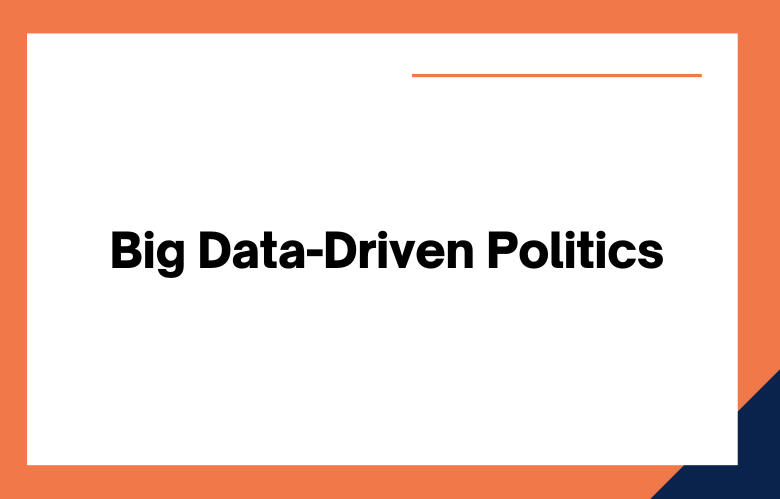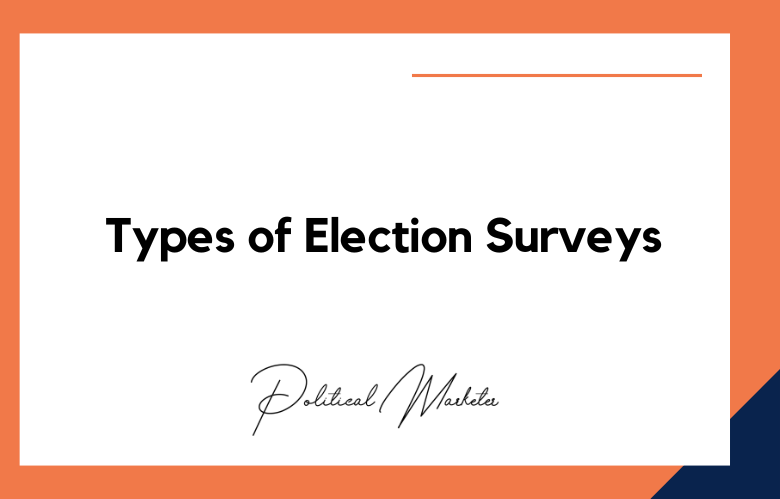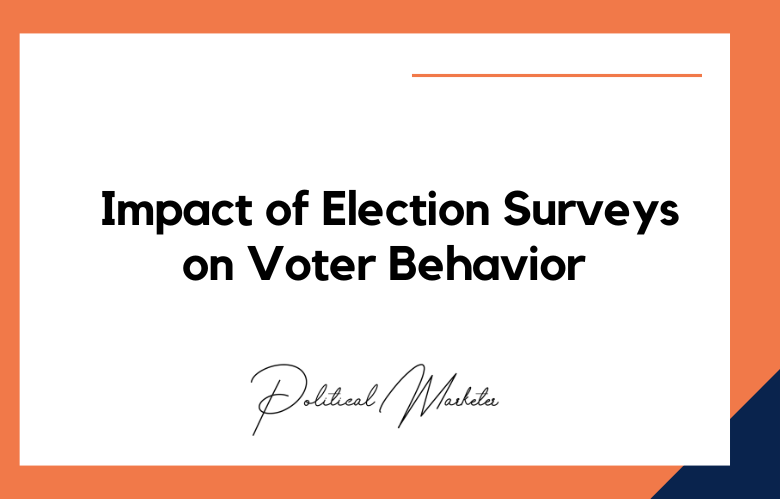Campaigns these days are driven by data. Campaigns increasingly rely on analytics to guide strategy and tactics to make informed decisions. However, many campaigns still lag in technology and sophistication regarding data-driven campaigning in Big Data-Driven Politics.
What can we learn from the best practices of data-driven campaigns? And how can your campaign use data to its advantage?
We’ll explore the world of data-driven campaigning and share some tips on how your campaign can start using analytics today. The days of politicking based on gut feelings and personal relationships are long gone. In the digital age, data-driven campaigns are the best way to ensure victory.
By collecting and analyzing data on voters, campaigners can identify which issues matter most to them and craft tailored messages that will resonate. Additionally, data allows campaigners to track their outreach’s effectiveness and make necessary adjustments.
To run a successful political campaign, ensure you put data at the forefront!
How do political campaigns use your data?
Political campaigns are always looking for ways to target potential voters. They collect data from people who express interest in the campaign. This data includes contact information, demographics, and voting history. By understanding their data and how to use it, voters can make informed decisions about whether or not they want to support a particular campaign.
They collect it from various sources, including social media, surveys, and voter registration records. They then use it to target ads and fundraising appeals to you and other potential voters.
They access it in various ways, including social media, polling organizations, and voter databases. By doing this, they can target potential voters and better assess which issues matter to them.
Navigating the practice of data-driven political campaigns
Data has become increasingly important in political campaigns. To effectively reach voters, campaigns must now rely on data to target and tailor their message. However, navigating the use of data can be difficult. It requires a careful balance of using data to inform campaign strategy while staying true to the campaign’s goals.
Data is playing an increasingly important role in political campaigns. But campaign professionals are still trying to figure out how best to harness the power of data.
One problem they face is that there is no one-size-fits-all solution. Everyone is trying different approaches, and there is a lot of trial and error.
Another challenge is that data is constantly changing and evolving. What works today might not work tomorrow. So campaign professionals have to be agile and adaptable.
But despite all the challenges, data-driven campaigning is here to stay. And those who can master it will have a significant advantage in the political arena.
In the modern world of politics, data drives everything. Candidates and campaigns pour over polls and demographic information to micro-target potential voters. They use sophisticated data analytics to determine which messages resonate most.
Candidates and campaigns need to understand how to navigate the practice of data-driven political campaigns. They need to know how to find and interpret the correct data and use it to create effective strategies.
What is Big Data-Driven Politics?
Data have always driven politics. Political campaigns have long used data from demographics to voting patterns to target voters and get them to the polls. But with the advent of big data, politics has changed.
Now, campaigns can target individuals with laser precision, finding the issues that matter most to them and crafting messages that resonate. Big data is changing how campaigns are run and giving rise to a new breed of data-driven politicians.
Data have always driven politics. In the past, politicians would gather information by talking to their constituents and learning about their needs and concerns. With the advent of big data, politicians now have more information than ever to make decisions.
Big data can track voter behavior, election results, and public opinion polls. Politicians can use this data to learn about important issues to voters and craft their platforms accordingly. Using big data to track voters’ wants, politicians can create more effective campaigns and win elections.
The new frontier of political campaigning is using big data to target voters and influence their opinions. This type of politics relies on collecting vast amounts of data, then using it to find trends and create targeted messages.
Big data allows campaigns to personalize their message to voters and target them with ads and information most likely to persuade them. This type of politics has been highly influential recently and is only getting more sophisticated.
In politics, data is everything. Everything broke down into numbers, which track and predict voter behavior. It is what we call “big data.”
Some people say that big data takes the guesswork out of politics. But others argue that makeover policies and campaigns focus on what can be quantified rather than what matters to voters.
So what is Big Data-Driven Politics? It uses data to drive decision-making in political campaigns and governing. It’s a new way of looking at the world and changing how we do politics.
Big Data is transforming the landscape of politics. With vast troves of data collected on everything from voter behavior to campaign spending, big data is playing an increasingly important role in shaping the outcomes of elections.
Data-driven politics is giving rise to a new breed of candidates laser-focused on using data to guide their campaign strategy. These candidates are using big data to target likely voters, track the effectiveness of their advertising, and better understand the issues that matter most to voters.
Big data is also helping elected officials make more informed decisions about how to govern. By analyzing vast data, politicians can better understand constituents’ wants and needs and tailor their policies accordingly.
In short, big data is changing how politics works – for better or worse.
Applying Big Data for Political Success
In politics, big data is increasingly becoming an essential ingredient for success. By analyzing large data sets, political campaigns can more effectively target voters and swing elections. In the age of big data, those who know how to harness its power will have a distinct advantage.
Big data is changing the landscape of politics. By understanding and utilizing big data, political campaigns can be more successful than ever.
Analyzing can give politicians a considerable advantage in elections. Big data describes as the “new oil” in the world of politics.
So what exactly is big data? It is a large data set that analyzes to reveal trends and patterns. The use of big data has already transformed industries like retail and advertising, and now it is beginning to make its mark on politics.
Proponents of big data argue that it gives campaigns a much deeper understanding of voters. With detailed information on voter preferences and trends, campaigns can Craft targeted messages and appeals that are much more effective than traditional advertising.
Critics worry that using big data will give incumbents an unfair advantage and make it harder for new candidates to break into politics. However, there is no doubt that big data is here to stay, and those who learn to harness its power will poise for success.
Big data is helping to revolutionize the field of politics. Political campaigns use big data to target potential voters, raise funds, and plan strategies. By applying big data, political parties can increase their chances of success.
Big Data plays an essential role in Political Campaign Analytics.
Big Data is playing an increasingly important role in political campaign analytics. Campaigns can more accurately target voters and tailor their message to collect and analyze massive data. The data-driven approach revolutionizes campaigns and gives candidates a severe competitive edge.
Big Data has become increasingly prevalent in political campaign analytics. It provides insights that campaigns would otherwise be unable to obtain. Big Data is therefore playing an increasingly important role in politics.
Executing a successful political campaign requires a clear understanding of public opinion. Big data provides analytics that helps movements to gain this understanding. Doing so equips campaigners to target their messages and connect with voters effectively. Consequently, big data plays a vital role in modern political campaigning.
Big Data can provide insights that help improve political campaign strategies. For example, data can target potential voters, track voter trends, and measure the effectiveness of campaign messaging. By leveraging Big Data, political campaigns can more effectively target their efforts and resources to win elections.
Big Data Analytics and Transformation of Election Campaigns
In recent years, the role of big data analytics in election campaigns has become increasingly important.
It is because big data can provide insights into voter behavior and preferences that can tailor campaign messages.
Moreover, big data track voters’ engagement with the campaign, which can help optimize campaign strategies.
In other words, big data analytics plays a transformative role in election campaigns.
Big data analytics is transforming election campaigns. Politicians and campaign managers use big data to target individual voters with personalized messages. This targeted approach is more effective than the traditional mass marketing of election campaigns.
Big data analytics transforms how election campaigns run and analyze vast amounts of data; campaigns can target voters more effectively and efficiently than ever. The data-driven approach changes the election landscape and significantly impacts future races’ outcomes.
- Big data analytics is transforming the way election campaigns to run.
- By collecting and analyzing large amounts of data, campaigns can target voters more precisely than ever.
- This allows for more efficient use of resources and could lead to more successful election outcomes.
- In the future, we can expect big data to play an even more significant role in politics and campaign strategies.
Big data is transforming the way election campaigns are run. By analyzing large data sets, campaigns can target voters more effectively and understand what issues are most important to them. It allows campaigns to focus on the issues that matter most to voters and better connect with them.
Big Data Analytics in Elections Future
Big Data Analytics in the Election future is shrouded in potential. The possibilities are limitless, and the field is rapidly evolving. But with great power comes great responsibility and ethical concerns to consider. Ultimately, the future of Big Data Analytics in Elections is bright but still unfolding.
The future of Big Data Analytics in Elections is looking very promising. The right tools and data help predict election outcomes and improve voter turnout. Additionally, it can target specific voters with personalized messages and improve campaign strategies.
The future of Big Data Analytics in Elections is shrouded in potential. The opportunities to collect and analyze data on voting habits are expanding rapidly. However, the ethical considerations surrounding the use of this data are also growing. As we enter an increasingly digital world, we must consider using data to create a more democratic society.
The future of Big Data Analytics in Elections is shrouded in potential. The vast data that can now be collected and analyzed opens up unprecedented possibilities to understand voters and predict election outcomes. But it raises troubling questions about the misuse of information and the subversion of democracy. Only time will tell what role Big Data will ultimately play in politics.
As we enter the digital age, big data analytics is becoming increasingly important in elections. Collecting and analyzing large amounts of data can better understand citizens’ voting behavior and predict election outcomes.
This information can improve campaign strategies and target voters more effectively. In the future, big data analytics will play a vital role in helping candidates win elections.
Big Data Analytics and Transformation of Election Campaign: Big Data-Driven Politics
Big data analytics is transforming election campaigns. Political campaigns increasingly use big data to target voters and tailor their message. Big data is changing how drives run, significantly impacting the outcome of elections.
The transformation of election campaigns through big data analytics is a hot topic in politics today. By harnessing the power of big data, political campaigns can gain a significant advantage in strategy and targeting. However, some observers have raised concerns about the potential misuse of big data in political campaigns. Nonetheless, it seems clear that big data is here to stay in politics.
In recent elections, Big Data analytics has played an increasingly important role in election campaigns. By analyzing large data sets, political campaigns can gain valuable insights into voters’ preferences and trends. This data can often transform the campaign strategy to target voters better. As we enter another election season, it will be interesting to see how big data analytics shapes the course of the campaign.
As we approach election season, understand big data analytics’s role in transforming how campaign strategies develop. With more and more data on voter behavior, campaigns can target specific messaging to individuals based on their likelihood of voting and their stated preferences.
This targeted approach can revolutionize the campaigning process, providing a much more efficient way of reaching voters and getting out the vote. It interests me that big data-driven strategies play out in the coming election cycle.
The development of big data analytics is changing the landscape of election campaigns. By harnessing the power of big data, political campaigns can now be more targeted and efficient than ever before.
This new technique is having a significant impact on the transformation of election campaigns. Big data analytics is giving rise to a new breed of campaign managers using technology to provide candidates with a competitive advantage.
As big data transform election campaigns, it interests to see how the new phenomenon will change the political landscape in the coming years.
Data-Driven Elections: Implications and Challenges for Democratic Societies
Data-driven elections are becoming more common as platforms, and organizations increasingly request and use voter data. However, there are implications and challenges for democratic societies to address. For example, data breaches are becoming more common and sophisticated, threatening votes security.
Data-driven elections are becoming more and more common in democratic societies. However, there are some implications and challenges that come along with this trend. For one thing, it raises questions about the role of data in democracy. Additionally, there are concerns about potential manipulation and data misuse during elections. As we move forward, we must consider these issues and find ways to mitigate potential problems.
The growing trend of data-driven elections has implications and challenges for democratic societies. The shift can impact how campaigns, votes to cast, and what kind of information to make decisions. These changes could lead to a more efficient democracy and present new risks.
Data has become increasingly important in elections. The implications and challenges this poses for democratic societies are significant.
For one, using data can give some candidates an unfair advantage. Those with more resources can hire data scientists to crunch numbers and help them micro-target voters. It provides an advantage in terms of reaching and persuading potential voters.
Furthermore, data-driven elections can be vulnerable to manipulation and hacking. If candidate A has access to data that reveals voter preferences and trends, they could use that information to sway the election’s outcome. It would undermine the very principle of democracy – that all citizens have an equal say in who leads them.
Given these implications and challenges, we must best consider regulating election data use. We need to ensure that all candidates have access to data and that the use of data does not skew the outcome of elections. Only then can we be confident that our democratic societies represent the people they seek to serve?
Data-driven elections are becoming more and more common in democratic societies. However, some implications and challenges come with this trend.
For one, it raises questions about the accountability of data and whether or not it is genuinely representative of the electorate. Additionally, it can be challenging to ensure voters’ privacy when dealing with such large amounts of data. Data-driven elections present opportunities and challenges for democratic societies that address.
Towards a Holistic Perspective on Personal Data and the Data-Driven Election Paradigm
The election is data-driven. We spoke to data experts to get a holistic perspective on personal data. They gave us their insights on the importance of personal data. They also emphasized the need for election transparency and security.
The way we use personal data is evolving. Previously, our data drives marketing and sales efforts. However, with the rise of big data and data analytics, we are shifting towards using data to manipulate political campaigns and elections.
It is known as the “data-driven election.” The power of extensive data campaigns targets voters precisely and tailors their message to specific demographics.
However, not everyone is on board with this trend. Some critics argue that this type of electioneering is undemocratic and violates privacy rights.
Nonetheless, the data-driven election is becoming increasingly prevalent. As we enter the new era of big data politics, it’s essential to take a holistic perspective on how personal data is used and abused.
In recent years, “personal data” has become a favorite topic, with many worrying about how their data is used and collected. A holistic perspective on personal data can help us better understand how information uses in campaigning and why it is essential to protect our data.
A holistic perspective on personal data considers how data is collected and used and how information can impact individuals and society. This perspective can help us better understand data’s role in electioneering and how to protect our data from misuse.
Conclusion
The role of big data analytics in politics is becoming more and more critical as we move into the future. As technology advances and we can collect and store more data than ever, political campaigns must learn how to use it to their advantage.
Our expert team helps analyze your data and transform it into actionable insights to help you win elections.
Contact us today to learn more about our Big Data Analytics Political Campaign Consulting services.










